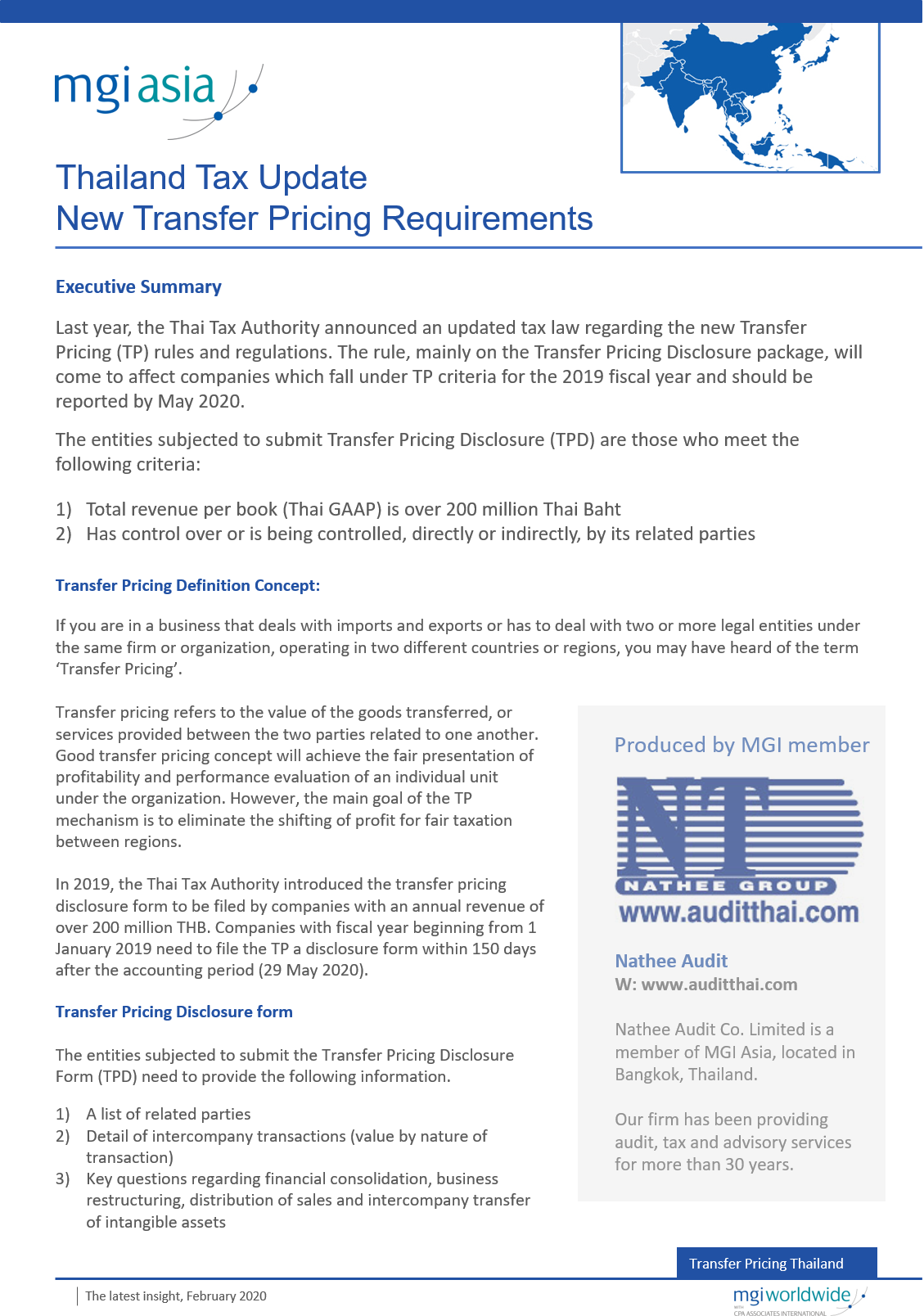Do you have clients with business in Thailand? Be sure you are up to date with the latest transfer pricing requirements
Last year, the Thai Tax Authority announced an updated tax law regarding the new Transfer Pricing (TP) rules and regulations. The rule, mainly on the Transfer Pricing Disclosure package, will come to affect companies that fall under TP criteria for the 2019 fiscal year and should be reported by May 2020. In the latest white paper from MGI Asia network member firm Nathee Audit Co. Limited located in Bangkok, Thailand, clearly sets out the details of these new requirements.
What is transfer pricing?
If you are in a business that deals with imports and exports or has to deal with two or more legal entities under the same firm or organization, operating in two different countries or regions, you may have heard of the term ‘Transfer Pricing’.
Transfer pricing refers to the value of the goods transferred, or services provided between the two parties related to one another. Good transfer pricing concept will achieve the fair presentation of profitability and performance evaluation of an individual unit under the organization. However, the main goal of the TP mechanism is to eliminate the shifting of profit for fair taxation between regions.
In 2019, the Thai Tax Authority introduced the transfer pricing disclosure form to be filed by companies with annual revenue of over 200 million THB. Companies with the fiscal year beginning from 1 January 2019 need to file the TP a disclosure form within 150 days after the accounting period (29 May 2020).
Who needs to disclose
Entities that fall under the following criteria need to submit the TPD form.
1) Total revenue per book (Thai GAAP) is over 200 million Thai Baht
2) Has related parties, including parent and sister companies, who are directly or indirectly holding more than 50% of the company’s paid-up share capital.
3) Has related parties, including parent and sister companies, for whom the company is directly or indirectly holding more than 50% of related parties’ share capital.
The revenue is determined according to GAAP in Thailand and includes other income.
The control is determined by the holding of shares, vertically or horizontally, cross-border or domestically.
Read the full white paper HERE.
About Nathee Audit Co. Limited
As a member of MGI Worldwide with CPAAI, Nathee Audit Co. Limited specialises in Thai taxation. For more information on this unprecedented taxation ordinance and other investment incentives and opportunities for doing business in Thailand, please contact our tax Experts at Nathee Audit Co. Limited in Bangkok, Thailand.
For further details please visit Nathee Audit’s member profile page HERE or visit their website HERE.
MGI Asia is part of MGI Worldwide with CPAAI, a top 20 ranked global accounting network and association with 10,000 independent auditors, accountants and tax experts in some 460 locations in almost 100 countries around the world.

